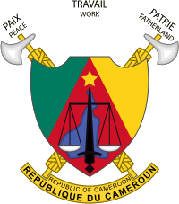Social Economy comprises all the cooperative societies, mutual societies, associations, trade unions and foundations operating under the principles of solidarity among members. The expression also refers to:
- institutions playing prominent economic roles (cooperative societies, micro-finance institutions, banks, mutual societies, associations, etc.)
- the notion of solidarity economy, built on experimentation from innovations in the functioning of the economy and insertion through economic activity.
It aims at establishing the primacy of human being over capital and its judicious use in furthering general interest, and thereby justifying its social utility.
The Department of Social Economy (DES) is the organ in MINPMEESA responsible for the implementation of the Ministry’s policy concerning the development of Social Economy. This structure is therefore responsible for:
- elaborating and implementing the national policy on the development of Social Economy;
- The structuring of Social Economy organisations;
- Drawing up and implementing a specific regulation in the domain of Social Economy, in partnership with competent administrations;
- coordinating and following-up support actions in favour of Social Economy;
- developing the professionalisation of Social Economy organisations;
- following-up and evaluating programmes and projects piloted by Social Economy organisations;
- Supporting the upgrading of Social Economy organisations;
- setting up and animating a consultation framework between the State and Social Economy organisations;
- bookkeeping a directory of Social Economy organisations, in partnership with competent services.
The DES is headed by a Director and is sub-divided into two sub organs:
- the Sub Department of Social Economy Organisations;
- the Sub-Department of the Development of Social Economy.

